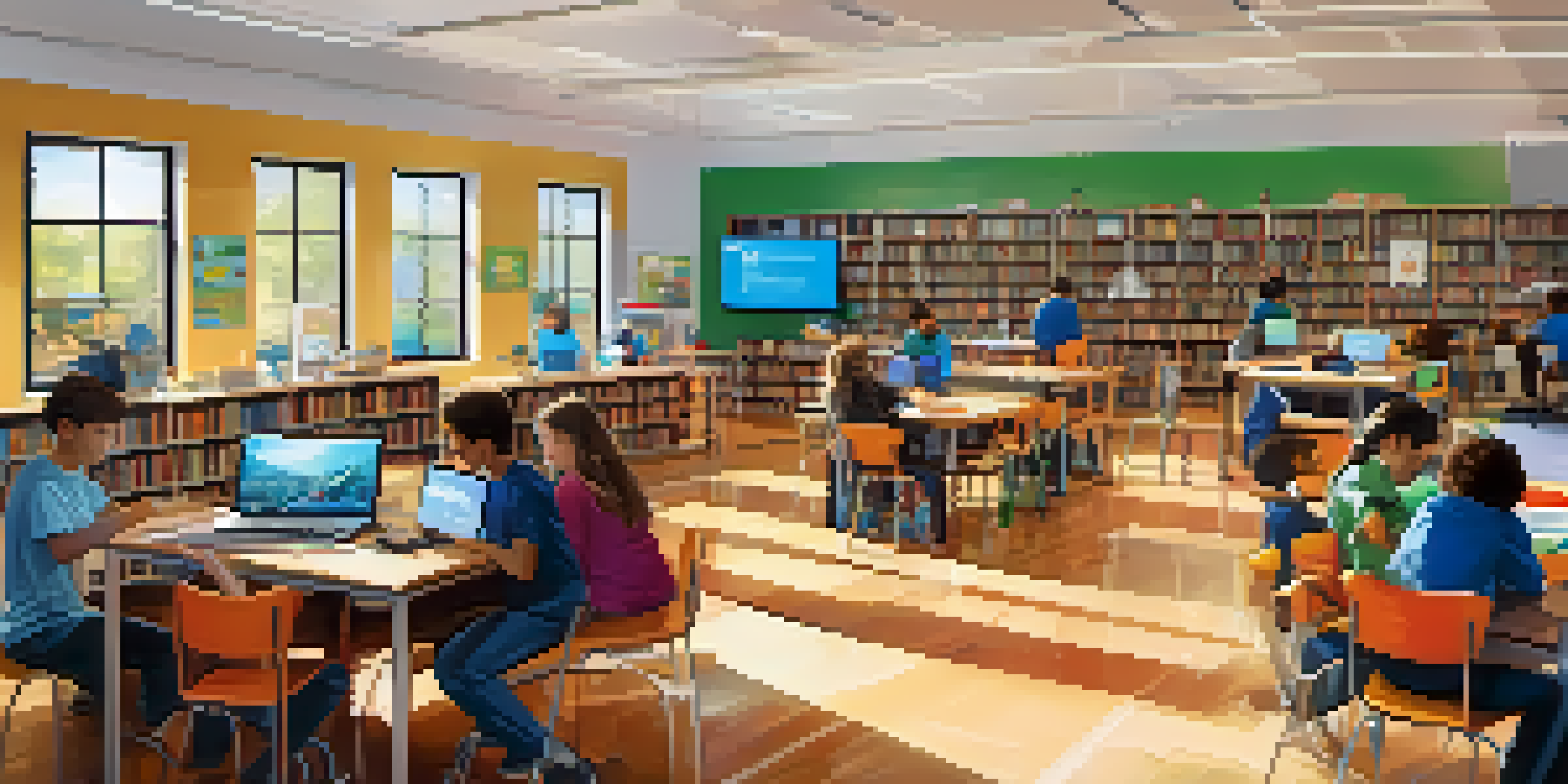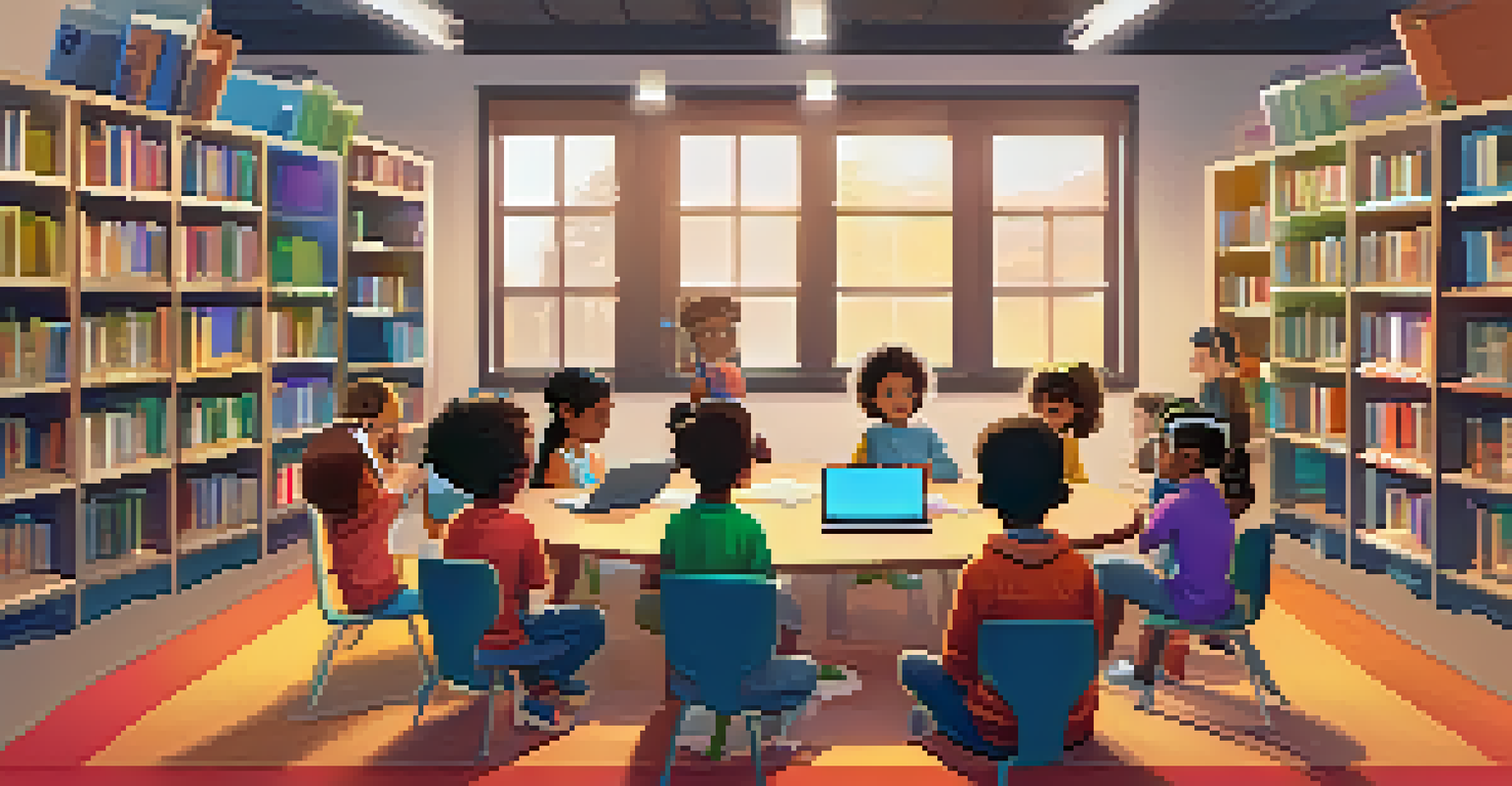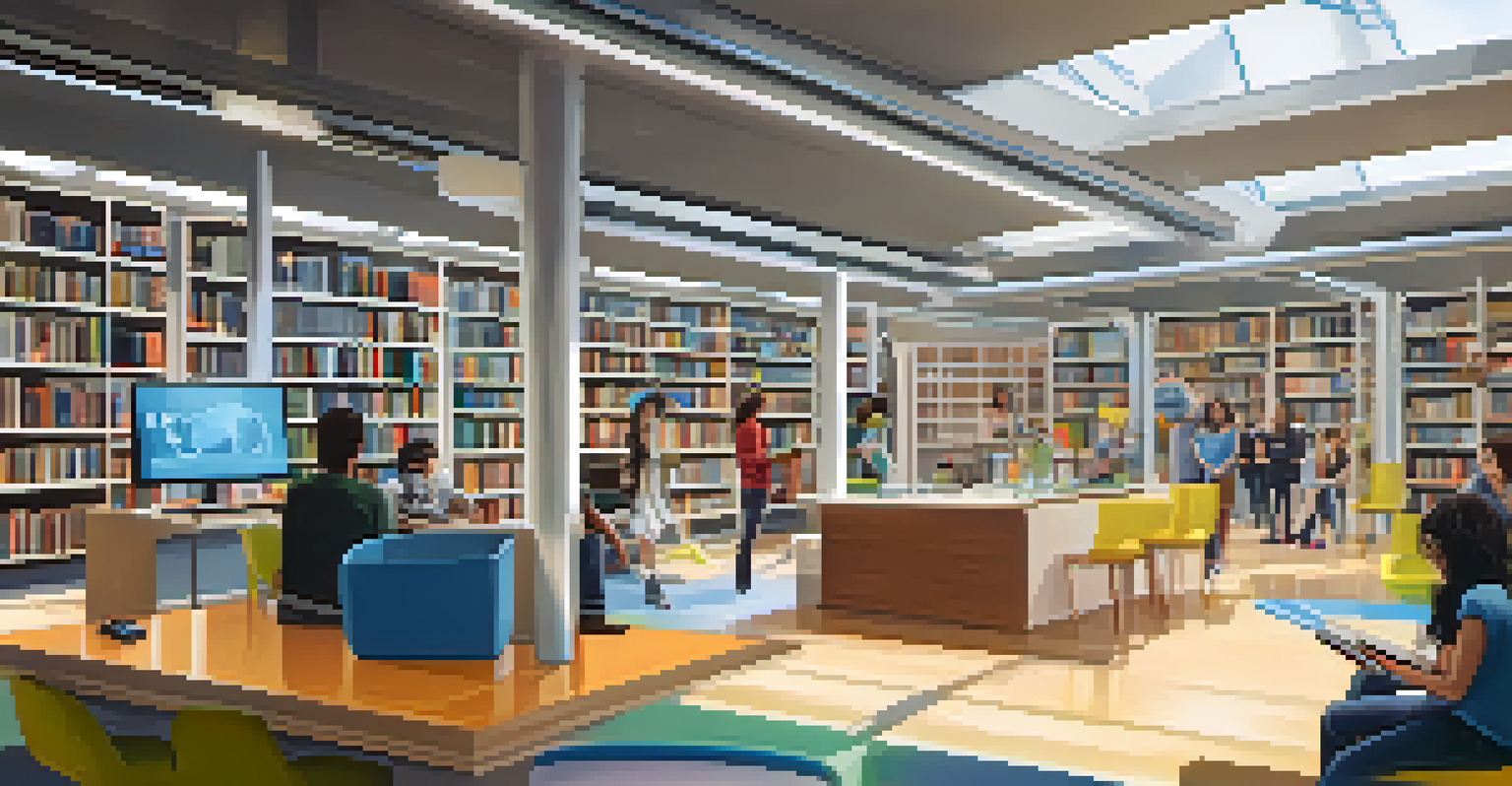The Role of Libraries in Supporting STEM Education in SF

The Importance of STEM Education in Today's World
STEM education, which focuses on science, technology, engineering, and mathematics, is crucial for preparing students for the future job market. With technology rapidly evolving, having a strong foundation in these areas equips students with essential skills. Moreover, STEM fields are expected to drive economic growth and innovation, making it vital for educational institutions to prioritize this curriculum.
Science and technology are the keys to unlock the future.
In San Francisco, a city known for its tech industry, the demand for STEM professionals is particularly high. This creates an urgent need for accessible educational resources that can support students at all levels. By fostering an interest in STEM subjects from an early age, libraries play a pivotal role in nurturing the next generation of innovators.
With the right resources and support, students can develop critical thinking and problem-solving skills through STEM education. This not only prepares them for careers in high-demand fields but also empowers them to contribute positively to society. Libraries in San Francisco are stepping up to meet this challenge.
Libraries as Accessible Learning Hubs for STEM
Libraries have transformed into vital learning hubs that provide free access to resources and information in STEM fields. They offer a wealth of books, online databases, and educational materials that anyone can access, making them an invaluable resource for students and educators alike. This accessibility helps bridge the gap for those who may not have the same resources at home.

In San Francisco, many libraries host workshops, coding classes, and STEM-related events that engage the community. These hands-on experiences allow participants to explore concepts in a fun and interactive way, further igniting their passion for science and technology. By making learning enjoyable, libraries foster a lifelong love of knowledge.
STEM Education is Essential
A strong foundation in STEM subjects equips students with critical skills needed for future careers and economic growth.
Additionally, libraries often collaborate with local schools and organizations to provide targeted programs that address specific needs in the community. This collaborative approach ensures that STEM education reaches a diverse audience, allowing students from various backgrounds to thrive.
Hands-On STEM Programs and Workshops
One of the most exciting aspects of libraries in San Francisco is their commitment to hands-on STEM programs and workshops. These initiatives often involve activities like robotics, coding, and science experiments, which allow participants to apply theoretical concepts in practical ways. Such experiences not only make learning more engaging but also help develop essential skills such as teamwork and critical thinking.
The only way to do great work is to love what you do.
For example, programs like ‘Maker Mondays’ at local libraries provide the tools and guidance for participants to create their own projects, fostering creativity and innovation. These workshops encourage students to take risks and learn from their mistakes, which is a crucial part of the learning process. It's about more than just the end product; it's about the journey of discovery.
Moreover, these hands-on experiences can spark an interest in STEM careers that participants may not have considered before. By introducing them to real-world applications of STEM, libraries play a critical role in shaping future career paths.
Promoting Diversity in STEM Through Libraries
Diversity in STEM fields is essential for innovation and creativity, yet many underrepresented groups face barriers to access. Libraries in San Francisco are actively working to promote diversity in STEM by providing inclusive programs that cater to all backgrounds. By creating a welcoming environment, they encourage participation from a broader range of individuals.
Initiatives such as mentorship programs and partnerships with local organizations help connect students with role models in STEM fields. This exposure is crucial for young learners, as it allows them to see themselves in these careers and understand that they, too, can succeed in STEM. Libraries are uniquely positioned to foster these connections, making a significant impact on their communities.
Libraries Foster STEM Learning
Libraries in San Francisco provide accessible resources, hands-on programs, and community engagement to promote STEM education for all.
Additionally, by offering resources in multiple languages and culturally relevant materials, libraries ensure that all community members can access STEM education. This commitment to inclusivity is vital for building a diverse pipeline of future STEM professionals.
Utilizing Technology for STEM Learning
In today's digital age, technology plays a significant role in STEM education, and libraries are embracing this trend. Many San Francisco libraries are equipped with advanced technology, including 3D printers, coding kits, and virtual reality tools. These resources provide students with hands-on experience that complements traditional learning methods.
Workshops that incorporate technology not only enhance understanding of STEM concepts but also prepare students for a tech-driven world. For instance, coding classes can demystify programming languages and empower students to create their own apps or websites. This practical knowledge is invaluable in a landscape where digital skills are increasingly important.
Moreover, libraries often offer access to online learning platforms that provide a wealth of STEM courses. This flexibility allows learners to explore subjects at their own pace, making it easier for them to grasp complex ideas and concepts.
The Role of Library Staff in STEM Education
Library staff play a crucial role in promoting STEM education by facilitating programs and guiding patrons to the right resources. Their expertise in information literacy helps students navigate the vast amount of information available in STEM fields. By providing personalized assistance, they can help learners find materials that suit their interests and educational needs.
Additionally, many library staff members are trained in STEM subjects themselves, allowing them to deliver workshops and educational programs effectively. Their passion for STEM topics can inspire students and create a positive learning environment. This personal connection can often make a significant difference in a student’s enthusiasm for learning.
Promoting Diversity in STEM
Libraries actively work to create inclusive programs that encourage participation from underrepresented groups in STEM fields.
Furthermore, library staff are often the driving force behind community outreach efforts. By collaborating with local schools and organizations, they can promote STEM initiatives that reach a wider audience, ensuring that the benefits of library resources extend beyond the walls of the library.
Future Directions for Libraries and STEM Education
As we look to the future, the role of libraries in supporting STEM education is set to grow even more significant. With advancements in technology and changes in educational needs, libraries must continue to adapt and innovate. This might include expanding their range of programs, integrating new technologies, or forming new partnerships with educational institutions.
In addition, libraries can play a pivotal role in advocating for equitable access to STEM education. By addressing barriers and promoting inclusivity, they can ensure that all students have the opportunity to succeed in these vital fields. This commitment to equity will be essential for fostering a diverse and skilled workforce.

Ultimately, libraries are more than just places to borrow books; they are community hubs that can inspire and empower future generations. As they continue to evolve and embrace the challenges of the modern world, their impact on STEM education will undoubtedly be profound.